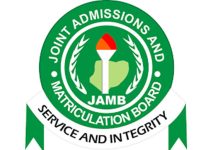The National Examinations Council (NECO) announced on Thursday that over 700,000 students passed the 2022 Senior School Certificate Examination.
Professor Ibrahim Dantani Wushishi, Chief Executive Officer of NECO, made the announcement during a press conference in Minna, Niger State’s capital.
“It gives me great pleasure to inform you that the conduct of this year’s Senior School Certificate Examination (SSCE) Internal has been adjudged by many stakeholders to be hugely successful in recent years. This indeed is a big achievement,” Wushishi said.
The NECO boss said that of the 1,198,412 candidates who took the exam, 727,864 (60.74%) received credit passes or higher in five subjects, including English Language and Mathematics.
Wushishi, who is also the body’s registrar, described the process as a major accomplishment under his leadership as substantive head. He also advised candidates to check the NECO website for results.
Concerning examination malpractice, the registrar stated that a total of 13,594 candidates, or 0.13 percent of the total number of candidates, were involved in various forms of malpractice during the examination’s administration.
According to him, the number of people involved in examination malpractice in 2021 was 20,003, accounting for 1.63 percent of all candidates that year.
“The Council has a long-standing tradition of zero tolerance for malpractice. Thus, it can be noticed that the malpractice incidence in 2022 has dropped, compared to the figure of 2021,” he went on to say that NECO would stick to its commitment to sanitizing the system.
According to the NECO chief, four schools have been recommended for de-recognition “for two years due to their involvement in mass cheating/whole school cases.”
He explained that the decision was part of an effort to demonstrate to stakeholders the university’s commitment to zero-tolerance for examination malpractice.
He added, “Also, twenty-nine (29) supervisors were blacklisted for various offences ranging from poor supervision, Insult, Aiding and Abetting, during the examinations.”












